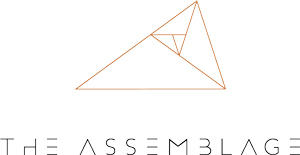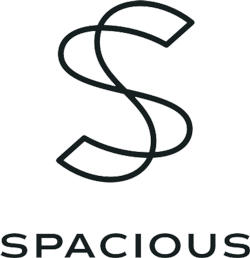The Assemblage

Rodrigo Niño, the 49-year-old crowdfunding entrepreneur, took ayahuasca in Peru one summer and achieved enlightenment. What people needed was a new kind of co-working space, focused on togetherness and well-being for those at the “intersection of technology, consciousness and capital,” he told the New York Times last year. The Assemblage is Rodrigo’s first shot at co-working. But don’t expect hallucinogenic experiences at the 331 Park Avenue South location — don’t even expect beer or coffee. Unlike some of the perks offered by We Work, the Assemblage “offers elixirs and tea infusions,” according to the Times. Extracurricular events include talks from local shamans and other spiritual thought leaders in keeping with the company’s slogan: “We don’t work, we Assemble.” Evening-only memberships start at $200 a month.
Related: Co-working goes corporate
The Wing
 Another startup doubling down on community-building around entrepreneurs and freelancers is the Wing, a co-working service solely for women. The startup — co-founded by New York political insider Audrey Gelman and her business partner Lauren Kassan — has three locations in the city and three more in San Francisco, Washington, D.C., and Los Angeles. The company, which was founded in 2016, has raised $42.5 million in venture capital. That includes a $32 million Series B round led by WeWork, which gives the co-working giant a majority stake in its smaller peer. Last month, Gelman and Kassan’s startup announced it would launch “the Little Wing,” which will provide day care services to mother members while they work.
Another startup doubling down on community-building around entrepreneurs and freelancers is the Wing, a co-working service solely for women. The startup — co-founded by New York political insider Audrey Gelman and her business partner Lauren Kassan — has three locations in the city and three more in San Francisco, Washington, D.C., and Los Angeles. The company, which was founded in 2016, has raised $42.5 million in venture capital. That includes a $32 million Series B round led by WeWork, which gives the co-working giant a majority stake in its smaller peer. Last month, Gelman and Kassan’s startup announced it would launch “the Little Wing,” which will provide day care services to mother members while they work.
Spacious
 Preston Pesek, who’s had stints at Fortress Investment Group and SL Green Realty, still believes there’s a way to monetize freelancers working in coffee shops. Spacious, which he co-founded with the startup’s now former chief technology officer, Chris Smothers, rents out spaces in restaurants that are closed during the day, as well as dormant storefronts. Its memberships are heavily discounted, and for about $100 a month, customers can use any of 18 locations in New York and San Francisco without a reservation. “Because we are getting displaced at the end of the day, or the end of the month, we have a mobile app that informs customers where they can go,” said Pesek. Spacious, which launched in 2016, has raised $15 million in seed and Series A venture capital. The company recently signed a short-term license agreement for 9,000 square feet at 34 Union Square East, which the building’s owner is looking to sell.
Preston Pesek, who’s had stints at Fortress Investment Group and SL Green Realty, still believes there’s a way to monetize freelancers working in coffee shops. Spacious, which he co-founded with the startup’s now former chief technology officer, Chris Smothers, rents out spaces in restaurants that are closed during the day, as well as dormant storefronts. Its memberships are heavily discounted, and for about $100 a month, customers can use any of 18 locations in New York and San Francisco without a reservation. “Because we are getting displaced at the end of the day, or the end of the month, we have a mobile app that informs customers where they can go,” said Pesek. Spacious, which launched in 2016, has raised $15 million in seed and Series A venture capital. The company recently signed a short-term license agreement for 9,000 square feet at 34 Union Square East, which the building’s owner is looking to sell.
Related: The co-working space race
The Ministry
 What if you never had to leave your favorite nightclub? Ministry of Sound in London — where Europe’s top DJs have blasted beats to ecstatic dancers since the early 1990s — is testing whether its nighttime brand can be reimagined for the workweek. This summer, the club’s owners opened the Ministry, a music industry-focused co-working space located right next door. The members-only social workspace, located in a Victorian warehouse in London’s Southwark, spans six floors and comes equipped with recording studios, soundproofed rooms, a 70-foot bar and a courtyard with a fire pit — the perfect spot to tune in, turn on and work into the night.
What if you never had to leave your favorite nightclub? Ministry of Sound in London — where Europe’s top DJs have blasted beats to ecstatic dancers since the early 1990s — is testing whether its nighttime brand can be reimagined for the workweek. This summer, the club’s owners opened the Ministry, a music industry-focused co-working space located right next door. The members-only social workspace, located in a Victorian warehouse in London’s Southwark, spans six floors and comes equipped with recording studios, soundproofed rooms, a 70-foot bar and a courtyard with a fire pit — the perfect spot to tune in, turn on and work into the night.
Correction: This story was updated to correct inaccuracies about Spacious and its Union Square location.
